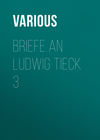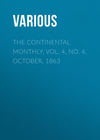Buch lesen: «The Mirror of Literature, Amusement, and Instruction. Volume 10, No. 289, December 22, 1827», Seite 5
Iron
It is a singular fact, that the value of the iron annually produced in England greatly exceeds the value of the silver annually produced in Peru.
Hair
At a recent meeting of the Academy of Sciences, at Paris, M. F. Cuvier, in a memoir on the generation of feathers, spines, and hair, introduced the following curious conclusion:—"I consider the organic system which produces hair as analogous to that of the senses, and even as forming part of them; for the hair is in a great number of animals a very sensitive organ of touch. It is not only in mustaches that we have a proof of it, but on the whole surface of the body. The slightest touch of a hair is sufficient in cats, for example, to make them contort their skin and shudder, as they do when they find something light attached to the hair, and that they wish to shake off."
Population of England
The United Kingdom of Britain and Ireland contains 74 millions of acres, of which at least 64 millions of acres may be considered capable of cultivation. Half an acre, with ordinary cultivation, is sufficient to supply an individual with corn, and one acre is sufficient to maintain a horse; consequently, the united kingdom contains land enough for the sustenance of 120 millions of people, and four millions of horses.—Edmunds on Political Economy.
Singing
The following passage from a letter by the late Carl M. Von Weber appears to be worthy of the attention of dramatic and other singers:—
"Every singer imparts, though unconsciously, the colouring of his own individual character to the dramatic character which he sustains. Thus, two singers, the one possessed of a slight and flexible voice, the other of an organ of great volume and power, will give the same composition in a manner widely different. The one will, doubtless, be more animated than the other; and yet both may do justice to the composer, inasmuch as both mark the gradations of passion in his composition, faithfully and expressively, according to the nature and degree of power possessed by each. But it is the duty of the music director to prevent the singer from deceiving himself, by following too exclusively what at first appears to him most suitable. This caution is particularly necessary with respect to certain passages, but the effect of the whole piece should not suffer for the sake of some favourite roulade, which the singer must needs introduce."
Culture of Turnips
Until the beginning of the eighteenth century, this valuable root was cultivated among us only in gardens or other small spots, for culinary purposes; but Lord Townshend, attending King George the First on one of his excursions to Germany, in the quality of secretary of State, observed the turnip cultivated in open and extensive fields, as fodder for cattle, and spreading fertility over lands naturally barren; and on his return to England he brought over with him some of the seed, and strongly recommended the practice which he had witnessed to the adoption of his own tenants, who occupied a soil similar to that of Hanover. The experiment succeeded; the cultivation of field turnips gradually spread over the whole county of Norfolk; and in the course of time it has made its way into every other district of England. The reputation of the county as an agricultural district dates from the vast improvements of heaths, wastes, sheepwalks, and warrens, by enclosure and manuring—the fruit of the zealous exertions of Lord Townshend and a few neighbouring land-owners—which were, ere long, happily imitated by others. Since these improvements were effected, rents have risen in that county from one or two shillings to fifteen or twenty shillings per acre; a country of sheep-walks and rabbit-warrens has been rendered highly productive; and by dint of management, what was thus gained has been preserved and improved even to the present moment. Some of the finest corn-crops in the world are now grown upon lands which, before the introduction of the turnip husbandry, produced a very scanty supply of grass for a few lean and half-starved rabbits. Mr. Colquhoun, in his "Statistical Researches," estimated the value of the turnip crop annually grown in this country at fourteen millions; but when we further recollect that it enables the agriculturist to reclaim and cultivate land which, without its aid, would remain in a hopeless state of natural barrenness; that it leaves the land so clean and in such fine condition, as almost to insure a good crop of barley and a kind plant of clover, and that this clover is found a most excellent preparative for wheat, it will appear that the subsequent advantages derived from a crop of turnips must infinitely exceed its estimated value as fodder for cattle. If we were, therefore, asked to point out the individual who, in modern times, has proved the greatest benefactor to the community, we should not hesitate to fix upon the ingenious nobleman, whom the wits and courtiers of his own day were pleased to laugh at as "Turnip Townshend." In something less than one hundred years, the agricultural practice which he introduced from Hanover has spread itself throughout this country, and now yields an annual return which, probably, exceeds the interest of our national debt.—Sir Walter Scott—in the Quarterly Review.
Coals in the East
The Dutch newspapers state, that extensive coal mines have been discovered in Sumatra and Bantam.
Naphtha
Has been found to burn much better than other oils in mines where bad air prevails, and is less injurious to the health of the workmen. Oil of colza and tallow are extinguished, where naphtha, petroleum, and oil of bone, continue burning.
Fossils
Plates of above 600 fossil bones, (remains of a former world) recently discovered in the neighbourhood of Issoire, in France, are preparing for publication. They belong to more than 50 species of animals, now extinct; among which are elephants, horses, tapirs, rhinoceri, eleven or twelve kinds of stags, large cats, oxen, bears, dogs, otters, &c.
SPIRIT OF THE PUBLIC JOURNALS
POTIER, THE FRENCH "LISTON."
Potier, generally speaking—and it is the same with our own Liston—has never Actually observed any thing of what he presents to us. It is the spontaneous effusion of his own feelings—the immediate creation of his own mind—frequently arising at the moment at which we see it, and therefore never to be seen a second time—but always generated by the actor himself, and never mixed up with any thing else of an extraneous nature. This is one cause of the extraordinary variety of this actor, and consequently of his extraordinary popularity in his own country. We never tire of going to see him, because he is never the same on any two nights—or rather he never performs the same character twice in the same manner. It is also the secret of his unrivalled originality. There are but very few characters in which he can repeat himself, even if he would. And those are such as depend for their comicality upon collateral circumstances connected with them, rather than upon any thing essential to themselves.
There are some persons whose every look, feature, expression, and tone of voice conduce to comic effects; and many an actor has owed his success more to these than to any mental qualities or dispositions corresponding with them; or has even been successful in spite of these latter being in no degree adapted to the profession which circumstances have induced him to adopt. In proof of this fact, comic actors are quite as often dull and solemn people, as droll ones, in private life. The most remarkable instance of a face being a fortune, in this respect, is our own Liston. If he had not possessed a comic countenance, nothing could have prevented him from being a tragic actor, or have made him a comic one; for it is well understood that all his inclinations led him in that direction. The truth is, that Liston's style of acting is too chaste and natural to have been so universally popular as it is, but for the irresistible drollery of his features—which are the finest farce that ever was written. Now in this respect, as in all others, Potier differs from his contemporaries.
His voice, his face, and his person altogether, are in themselves antidotes to mirth, and might almost be supposed to set it at defiance. He might play the Apothecary, in Romeo and Juliet, or the Anatomie Vivante, without painting for them—as Stephen Kemble used to play their antithesis, Falstaff, without stuffing. And yet, instead of this seeming contradiction counteracting the essentially comic turn of his mind, the latter is so completely paramount, that it changes every thing within its reach to its own complexion.—New Monthly Magazine.
FRAGMENT OF THE NARRATIVE OF A STUDENT AT LAW
This is a portion of what the writer calls "a series of the most singular and mysterious events," commenced January 29,1791. It is perhaps a romance of real life, although there is something in it beyond probability—but nothing impossible. Our student is at first almost cut by an acquaintance for neglecting to notice him in the park, when in fact he was not in the park: the hall butler of the Temple proves by the parchment that he dined there four days of term, when he was sick, and some distance from town: next he is cut by a second acquaintance for not recognising him at a masquerade: then a similar affair occurs with a beautiful girl in – square; at the Theatre; and on the Serpentine. He is next recognised by an old friend at a gaming-table, who mentions the sale of an estate there for his last stake, which property our student really had sold, though under different circumstances; and then rejected by his chère amie for a slight which he never offered. The last event or link of this mysterious chain is familiarly narrated as follows:—
In returning one morning from Westminster, as I was passing through one of those small courts between Essex-street and Norfolk-street, (for of late I had sought the most retired ways,) I observed that two persons, of rather mean appearance, seemed to be dogging my footsteps. Uneasy at this circumstance, I hastened directly on to my chambers. I had, however, scarcely seated myself, when my servant informed me that two men wished to speak to me. On being admitted, they told me that they were officers of the police, and that they had a warrant to arrest me on a charge of felony. Surprise at the moment prevented my speaking; but as soon as I recovered myself I offered to accompany them to the magistrate. He was sitting, and the witnesses being in attendance, my examination took place immediately. A young man, of gentleman-like address, swore, that on the preceding evening he had been induced by one of his friends to visit one of the gambling-houses in the Haymarket—that he there saw me both playing and betting very rashly—that I appeared to be losing—that at length I quitted the room, and that soon afterwards his friend and himself followed. Now came the accusation. He swore, that just as he was leaving the door he felt some person drawing his purse from his pocket—that he immediately pursued the man, and at the corner of Jermyn-street seized me. That at first I submitted, and he dragged me to one of the lamps, and there most distinctly saw my countenance, when at that moment, by some piece of adroitness, which he could not explain, I slipped from his grasp, and instantly disappeared. His friend corroborated the story. The magistrate, after cautioning me, and expressing his regret at seeing a person of my appearance before him, asked me whether I wished to say any thing in my defence, I answered that I was the victim of some secret and devilish conspiracy, and that I would prove that I was at my chambers on the night in question. "I hope you may be able to do so," said the magistrate; "but in the mean time it is, my duty to commit you;" and I was conducted to gaol in a hackney-coach. I immediately summoned one or two of my friends, and after laying open to them the circumstances in which I had been placed, we concerted the best means of defence. My laundress could swear that I was in chambers the whole of the evening when the robbery was committed; and though this was the only direct evidence in my favour, yet I assembled at least a dozen persons, men of repute and station, as witnesses to my character. The trial excited prodigious interest, but what was that interest to the agony with which I regarded the issue! Should I be convicted, my mysterious enemies would enjoy, in triumph, my disgrace and degradation, and might probably proceed by the same diabolical contrivances to attempt even my life. The day came, and I was arraigned among a herd of common felons; but the consciousness of my innocence, and the hope of establishing it, supported my heart. No sooner had I heard the witnesses for the prosecution, than that hope died within me. A number of persons deposed, that on the night in question they had seen me in the gambling-house; but they were men of indifferent character, and not personally acquainted with me. At last, with astonishment and horror I saw my venerable friend, Mr. B–, put into the box, and heard him swear in positive terms that he was present in the room, and saw me at play. My defence availed nothing. The wretched old woman, whom I produced, as the court and jury believed, to establish my defence by perjury, was immediately discredited, and the jury returned a verdict of guilty. I was sentenced to six months' imprisonment. My feelings I will not attempt to describe.




















